Top 9 Qatari Culture, Customs and Etiquette
Should you remove your shoes when visiting friends? Should you greet those on elevators with a smile? When thinking about the dos and don'ts in your own ... read more...nation, these questions might not seem like the most obvious ones, but things that you might not even consider at home can have a major impact abroad. Here is a list of Qatari Culture, Customs and Etiquette.
-
Being a Muslim nation, local customs and traditions continue to be followed, and visitors are encouraged to respect local culture. As you settle in Qatar, Commercial Bank is delighted to provide some cultural and etiquette advice.
With a low prevalence of violent crime, Doha is a safe and welcoming city. When roaming about the city after dark, single ladies don't need to be particularly cautious. Common sense, however, is always applicable. Public intoxication, profanity, vulgar hand motions, and public displays of affection, on the other hand, might get you into a lot of trouble.In Qatar, dazzling skylines, famous culinary destinations, and opulent automobiles coexist with the ancient customs and architecture of the Arabian desert. In addition, the abundance of employment possibilities and excellent standard of living draw millions of foreigners to this sunny nation. As a result, Qatar is now the second-largest expat community in the world and a fascinating cultural patchwork.
In addition to its thriving economy, Qatar has made significant investments in its culture, creating internationally acclaimed museums, art galleries, film festivals, and outdoor concerts. The nation aims to be forward-thinking while not forgetting its history and is making a lot of effort to shift its conventional image to the outside world.

https://hslda.org/ 
https://www.dailysabah.com/ -
In Qatar, which is a conservative nation, it is best to avoid discussing sex, religion, or politics. Even if your beliefs on these subjects seem acceptable to you, you should keep in mind that they are based on a different set of circumstances (perhaps western). It's also crucial to be aware that criticizing the emir is illegal (per the constitution) and that disparaging the Prophet Mohammed is offensive.
Avoid eliciting personal information from locals, especially concerning female family members, and refrain from expressing enthusiasm for their material things. For the majority of Arabs, familiar privacy is a fundamental virtue. If you don't know the local laws, you risk getting fined or put in jail. Be careful not to bring any drugs, alcohol, pork, or pornographic items with you to the airport. You should be aware of what is prohibited from entering the nation because your luggage will be inspected.
Qatar does not consider alcohol to be prohibited, however there are severe limitations. Don't mistakenly provide alcohol to a Muslim or a youngster, for example. You can purchase and consume alcohol at hotels and eateries that are authorized to do so as a non-Muslim. Only restricted and authorized venues allow the serving of them. You can apply for a liquor license if you are an expat and want to buy alcohol from a store that is authorized to sell it. Once acquired, be sure to immediately bring it home and store it out of sight.
https://www.aboutpakistan.com/ 
http://smallbizclub.com -
Islamic traditions have a strong influence on Qatari society, hence traditional and conservative clothing is usually preferred. Both men and women dress in national attire. The typical attire for Qatari Arab men is a flowing white full-length robe (thawb) worn over underwear and trousers, smart sandals, and a keffiyeh (a white headscarf secured with a black rope).
However, some Qatari Arab women choose to wear the veil instead of the full-length black dress (abaya), which is typically worn over Western apparel (hijab). Embroidery in gold or silver is frequently used to embellish their traditional clothing. Qatari women's attire is significantly less formal than that of Saudi Arabia's neighbor, despite the fact that it is nonetheless conservative.
Men typically dress in a long-sleeved shirt, a tie, and casual pants for formal occasions. Except for extremely significant business meetings, suits are rarely worn. Dresses, pants/skirts (always below the knee), with a modest neckline and at least one-half sleeve are appropriate business clothing for women.
Although indigenous Qataris dress traditionally, they don't anticipate that visitors will as well. However, there are some clothing standards that everyone must adhere to. In the street, men should refrain from donning shorts and sleeveless shirts. In public places, women should refrain from wearing revealing clothing that does not cover their shoulders and knees, or that is tight or transparent. Public beaches are subject to this dress rule. Bikinis and bathing suits are inappropriate for both men and women. However, resorts and hotels have more lax policies and permit visitors to dress in beachwear (except for tiny bikinis or thong bottoms, for example).
The government takes the dress-code rule seriously, and anyone who violates it faces the penalties outlined in the penal code. A Qatari NGO started a public education campaign in 2012 to inform the many foreigners about public decency regulations.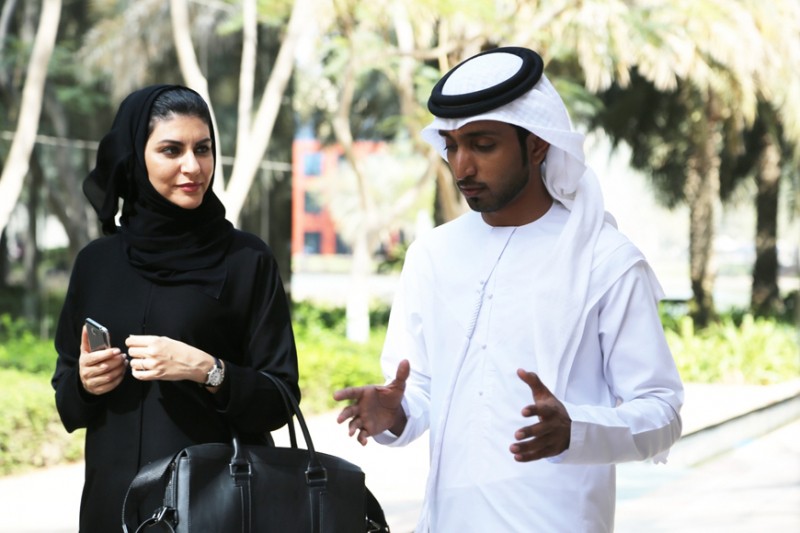
https://www.expatwoman.com/ 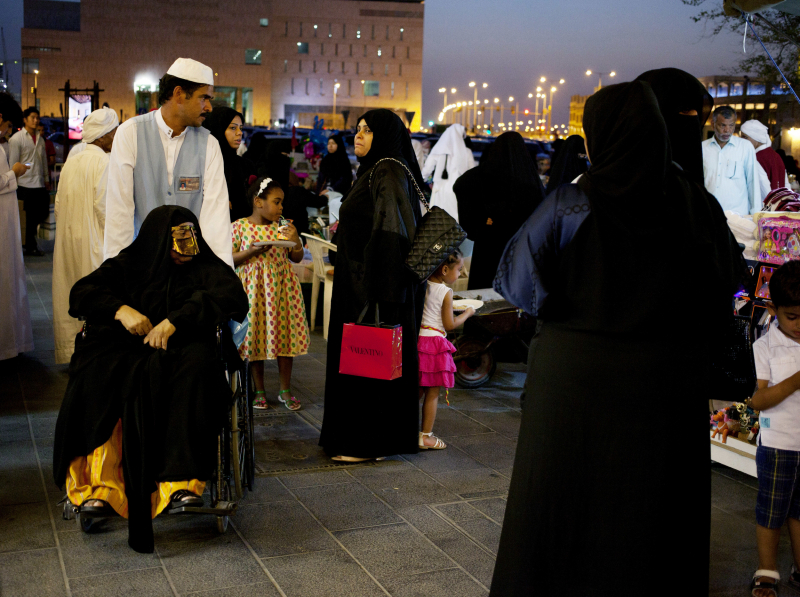
http://www.aol.com/ -
A wonderful way to experience a new culture and meet locals is to be welcomed to someone's home in Qatar. And if proper protocol is observed, Qataris have a reputation for being extremely cordial and kind. It is uncommon for Qataris to host couples or families, so if you are invited to someone's home, don't assume you can bring your spouse or family along.
You won't always sit together if they want your partner or family to attend; they will make that apparent when they extend the invitation. Additionally, it is customary but not required to bring a little present (candy, flowers, or housewarming mementos) or a meal to share.
When you arrive at the host's house, you should always take off your shoes before entering the majlis, which serves as the visitors' greeting area. You should also accept anything your hosts offer you to eat or drink with your right hand. It is impolite to refuse hospitality since in Arabic culture sharing a meal is a means to demonstrate affection and forge relationships.
Just leave a tiny bit of food on your plate when you're finished, and your host will understand. And if you're asked to sit on the floor (cross-legged) and eat with your hands, don't think it's unusual. Older guests are always served first, and your host may offer cutlery to those who are unable to eat with their hands. Say "Bismillah" before taking your first bite or sip, and "Alhamdulillah" to the host when you've finished your meal. Finally, it's crucial to understand that Arabs have a very strong feeling of family privacy, therefore you should never drop by their house without calling to let them know you're coming.In restaurants, you can use the palm of your hand to signal the waiter; however, you should not extend your index finger. Be mindful of the seating arrangement in formal settings. A Qatari will typically prevail in arguments about the dinner bill as well. If there is no service charge added to your bill by the venue, a 10% tip is appropriate.
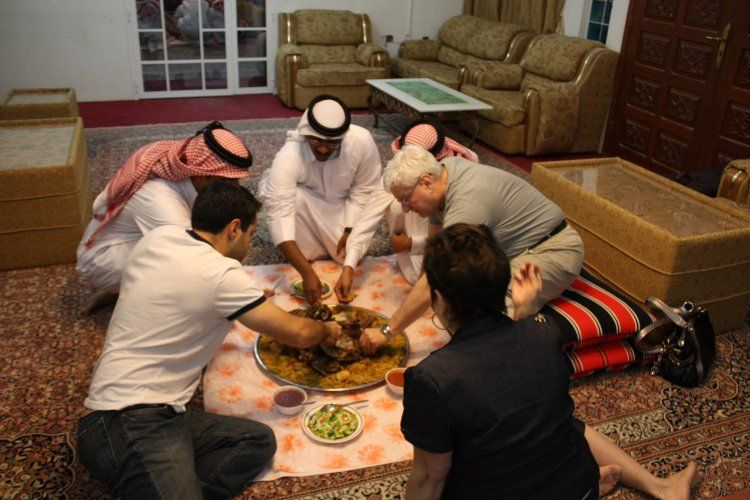
https://www.pinterest.com/ 
http://alsraiyagroup.com -
Nearly 85% of Qatar's population is made up of expats. You will likely first see other foreigners at the compounds or apartment complexes where the majority of these people reside, which are provided by their employment.
After arriving in the nation, you can join a variety of organisations to make new acquaintances who share your interests. Before moving abroad, people join online forums to network with other expats and get advise. Making friends with locals can be more difficult than making friends with other foreigners, despite the appearance of ease when it comes to mingling with other foreigners. Lack of Arabic language proficiency and religious traditions may be barriers to full integration.
Doha is the center of Qatar's nightlife, and there you may pick among nightclubs, concerts, lounges, pubs, and restaurants. In or around foreign hotels are where you'll find the majority of these. But be aware that in Qatar, it is illegal to consume alcohol in public and that only locations with licenses may offer alcoholic beverages. The act of appearing in public while intoxicated is likewise forbidden.
There are many of things to do in Qatar in the morning if you're a morning person. The biggest hotels include amenities including spa treatments, swimming pools, saunas, and brunches. Malls offer more than simply retail therapy; they frequently house movie theaters, unpretentious cafes, beauty parlors, sports arenas, restaurants, and even art galleries.Even for non-Muslims, Ramadan forbids eating or drinking in public from sunrise to sunset. Most likely, restaurants won't be open during these hours.

http://www.qatarliving.com 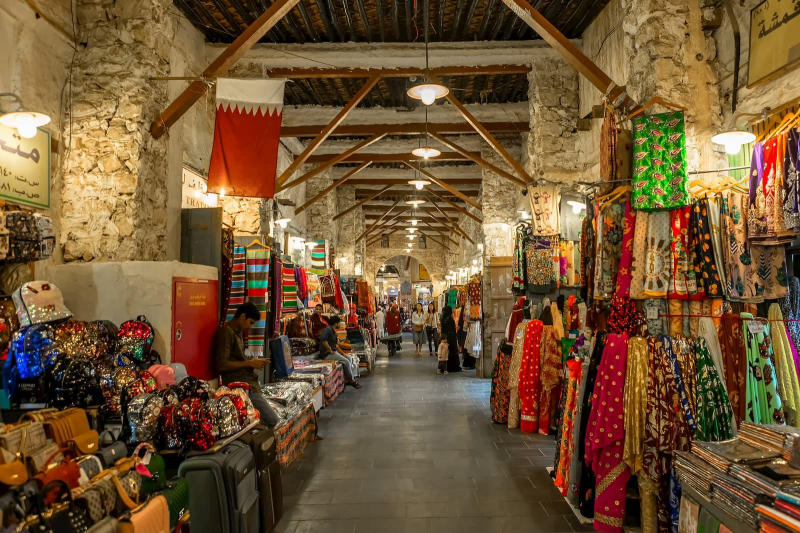
https://www.qatarliving.com/ -
Family, which refers to a group larger than the domestic unit, is the cornerstone of Qatari society. After getting married, ladies still belong to their father's family but also become a small part of their husband's. The preference is to reside with, or at least close to, the family members of their husband; this can be done by living in an extended family unit, a walled complex with separate residences, or a neighborhood.
Most marriages in Qatar are arranged, even when modified to accommodate modern needs. Young men and women are meeting more frequently and selecting their own mates on their own, for example, at work and school. Both parties still have the option to reject the arrangement, however the procedure is the same.
Qataris are required to participate in a number of pre-marriage education and counseling programs before the wedding. To reduce genetic risk, everyone must undergo a premarital medical exam.

https://www.qatarliving.com 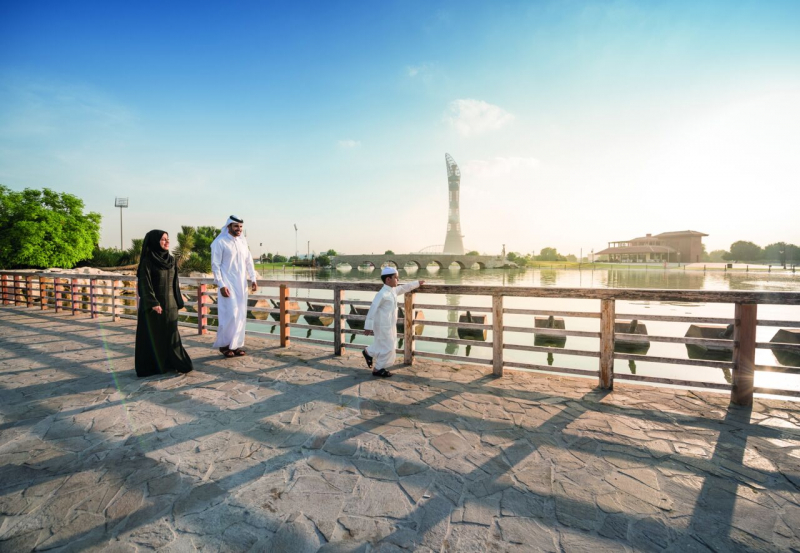
https://www.visitqatar.qa/ -
The Sharia Court in Qatar conducts Muslim wedding ceremonies. Non-Muslims cannot get married in a civil ceremony, however some embassies and churches will marry non-Muslims because it is illegal to live together as an unmarried couple in Qatar.
Despite being morally and legally acceptable, polygyny is no longer practiced in Qatar. In reality, if her husband marries another woman, the wife has the right to file for divorce. Interestingly, since 1980, the divorce rate in Qatar has been on the rise.
Weddings can last for several days and include multiple celebrations. Typically, males celebrate in one area of the house while women gather in another. The bride and groom meet up on the final night of the festivities, joined by several close friends and the groom's family.
Men typically wear thobes and swords, while women frequently wear gowns; they may also choose to wear suits or other appropriate wedding clothes. The bride wears a conventional white gown for the momentous occasion, and the groom dons a black robe over a white thobe.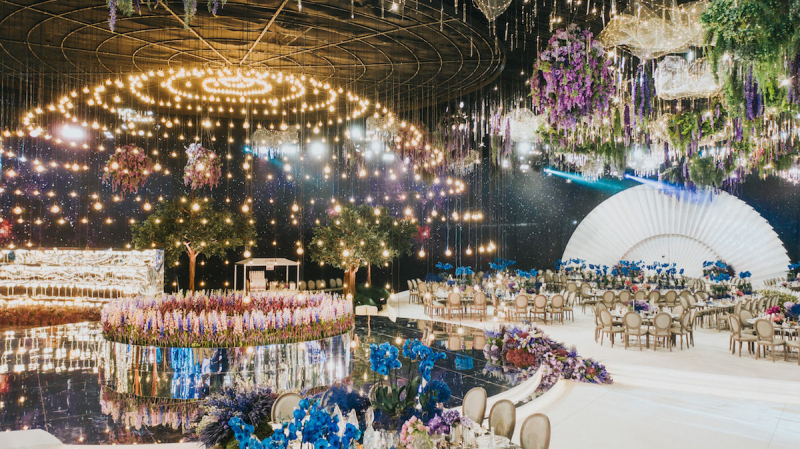
https://www.arabiaweddings.com 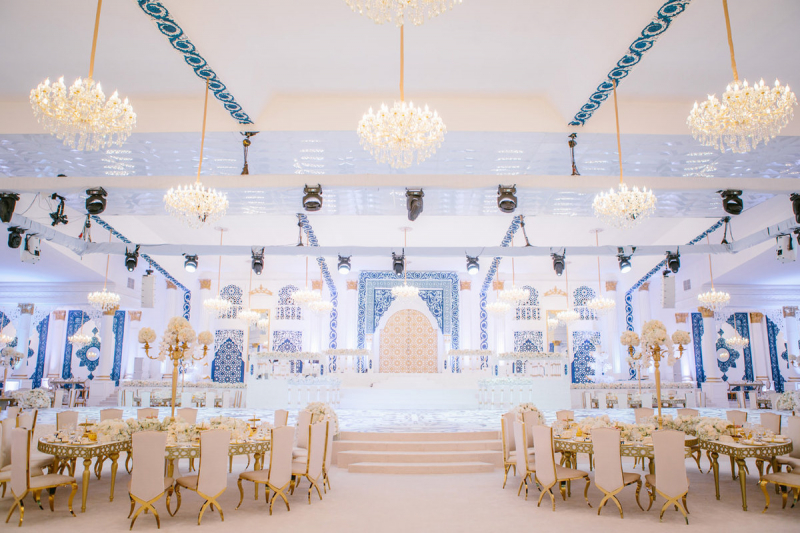
https://www.jacobandpauline.com/ -
Urban and coastal areas make up the majority of Qatar's population; Doha, the country's capital and largest commercial, administrative, and cultural hub, is home to 70% of the country's people. Only a small percentage of Qataris still live the ancient nomadic lifestyle, primarily in the north of the peninsula, where there are a few remaining patches of rare vegetation and irrigated farming fields.
The House of Thani has been in charge of Qatar as a hereditary monarchy ever since Mohammed bin Thani signed a treaty with the British in 1868 that acknowledged its distinct status. Following the Ottoman Empire, Qatar was a British protectorate until it gained independence in 1971. According to Qatar's Constitution, Tamim bin Hamad Al Thani is currently in charge of the courts and virtually all executive and legislative power.
There isn't much difference in culture, norms, and conduct throughout the regions of Qatar because Qatari citizens only make up a small part (15%) of the country's overall population today (about 2,7 million people). The majority of the foreign workers who reside there are from Pakistan, India, and Iran, thus there will likely be a fascinating fusion of cultural influences. Qatar has a thriving and diverse food sector as a result.
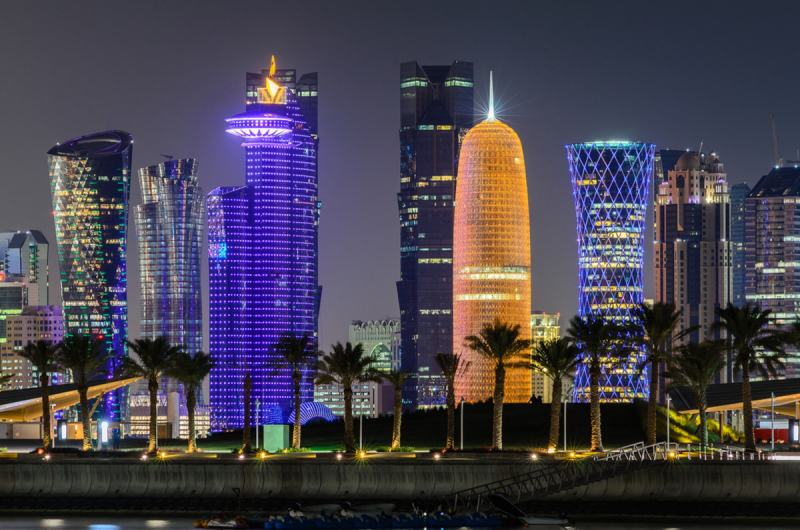
http://www.worldofcruising.co.uk 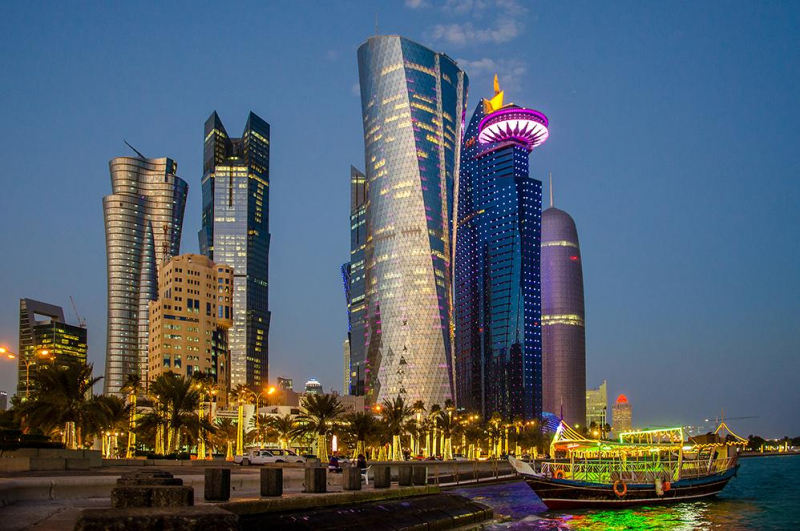
https://www.libertytravel.com -
Although Qatar is a very traditional nation, the country's contemporary and western appearance could deceive visitors into overlooking its traditional past. As a result, it's crucial to respect Qatar's culture and manners. Following social norms will help you stay clear of misunderstandings and legal entanglements. On the website of the Qatari Ministry of Foreign Affairs, the following advice is provided.
You shouldn't openly express certain of your feelings because doing so could result in your arrest and detention, according to the law; Especially with Arab women, never take pictures of military installations or other persons without their permission. You must stand up to welcome or meet visitors, especially senior citizens or high-ranking individuals. You must salute in the Muslim manner.
When addressing elderly individuals, use the Islamic salutation salamu alaykum; To receive refreshments that are handed to you, use your right hand; If you don't want any more Arabian coffee, shake the cup; If a guy meets a Qatari woman, he shouldn't shake her hand unless she extends her hand first; You shouldn't provide alcoholic beverages or dishes containing pig meat to your Muslim visitors;
Non-Muslims are permitted to consume alcohol in hotels and at private residences with the proper permits. They cannot, however, appear in public while intoxicated; It is not required for non-Muslims to fast during the holy month of Ramadan. But from dawn to dusk, people should refrain from eating, drinking, and smoking in public.
However, from dawn to dusk, they should refrain from eating, drinking, and smoking in public; Don't forget to remove your shoes before entering a Majlis (the place of receiving guests in a private house). If a lady is with you, you should lead her to a different female-only venue. Before you start talking, eat or drink something. Your host will be pleased if you share a dinner with him; Additionally, the nation has a zero-tolerance policy for the use and possession of illicit narcotics. Pork cannot be imported either.

https://www.youtube.com/ 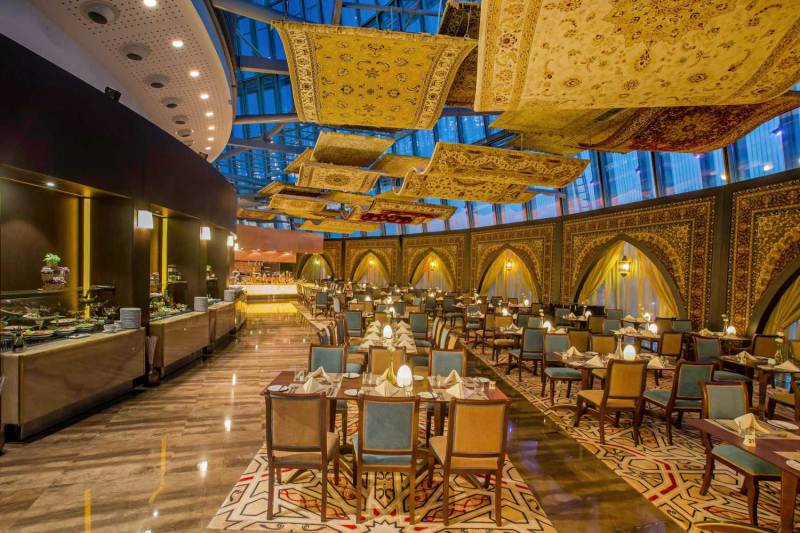
https://www.timeoutdoha.com






























